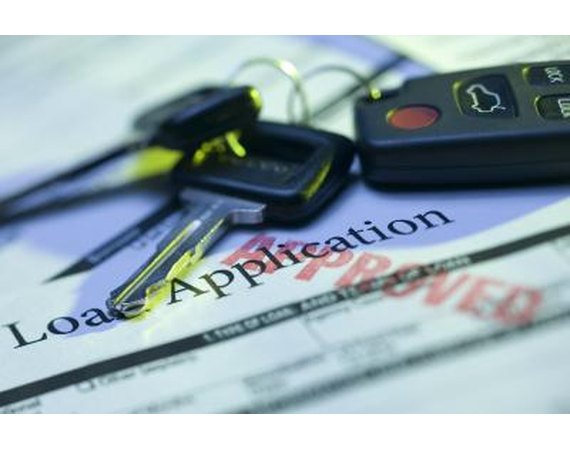
One of the last things you expect when you finance a new car is to pass away before you have the opportunity to pay off the vehicle. However, this is exactly what happens for some customers. An accident or unexpected illness could leave your family struggling to pay off the remaining balance of your auto loan, or it may face repossession.
Car Payments
When an individual dies before paying off his auto loan, someone has to continue making payments on the vehicle. The auto lender will not automatically repossess the car after receiving notice of the borrower's death, but it has the right to do so if the family misses car payments. Depending on the value of the assets the deceased left behind, the will executor can sometimes make monthly payments to the lender through the decedent's estate until the family determines who should inherit the vehicle.
Repossession
Don't assume that your family members would be willing to take over your car -- and its payments -- in the event of your death. If your loved ones already have a vehicle, they may not want to take on another car and insurance payment each month. In the event no one in a family wants the deceased individual's car, the family has the right to contact the lender and request that it pick up the vehicle through voluntary repossession.
Auto Loan Deficiency
When a lender repossess a car after the death of the borrower, it sells the vehicle and applies the sale proceeds to the loan's outstanding balance. If the sale does not net enough money to cover the remaining loan balance, the lender has the right to pursue the remaining debt. An auto lender cannot force the deceased's family to make payments on the deficiency, but it does reserve the right to file a claim against the deceased's estate with the probate court handling her affairs.
Payment Responsibility
Family members have no legal responsibility to the car or its payments. The only person obligated to make payments was the deceased. Because of this, your refusal to make payments on your deceased loved one's auto loan will not negatively impact your credit rating.
An exception to this rule applies if you cosigned for the loan. In the event the primary borrower cannot pay, the cosigner is legally responsible for paying off the debt. Should the bank repossess the car as a result of missed payments, the cosigner's credit report will reflect the missed payments and, ultimately, the repossession.
Credit Insurance
If the decedent carried credit insurance on her auto insurance policy, the insurance company will pay off the remaining balance of the loan in the event the borrower unexpectedly dies. This spares grieving family members the stress of having to make car payments during a trying time. Once the insurance pays off the vehicle, the individual who inherits it does so free and clear, and the lender cannot repossess the vehicle.
















